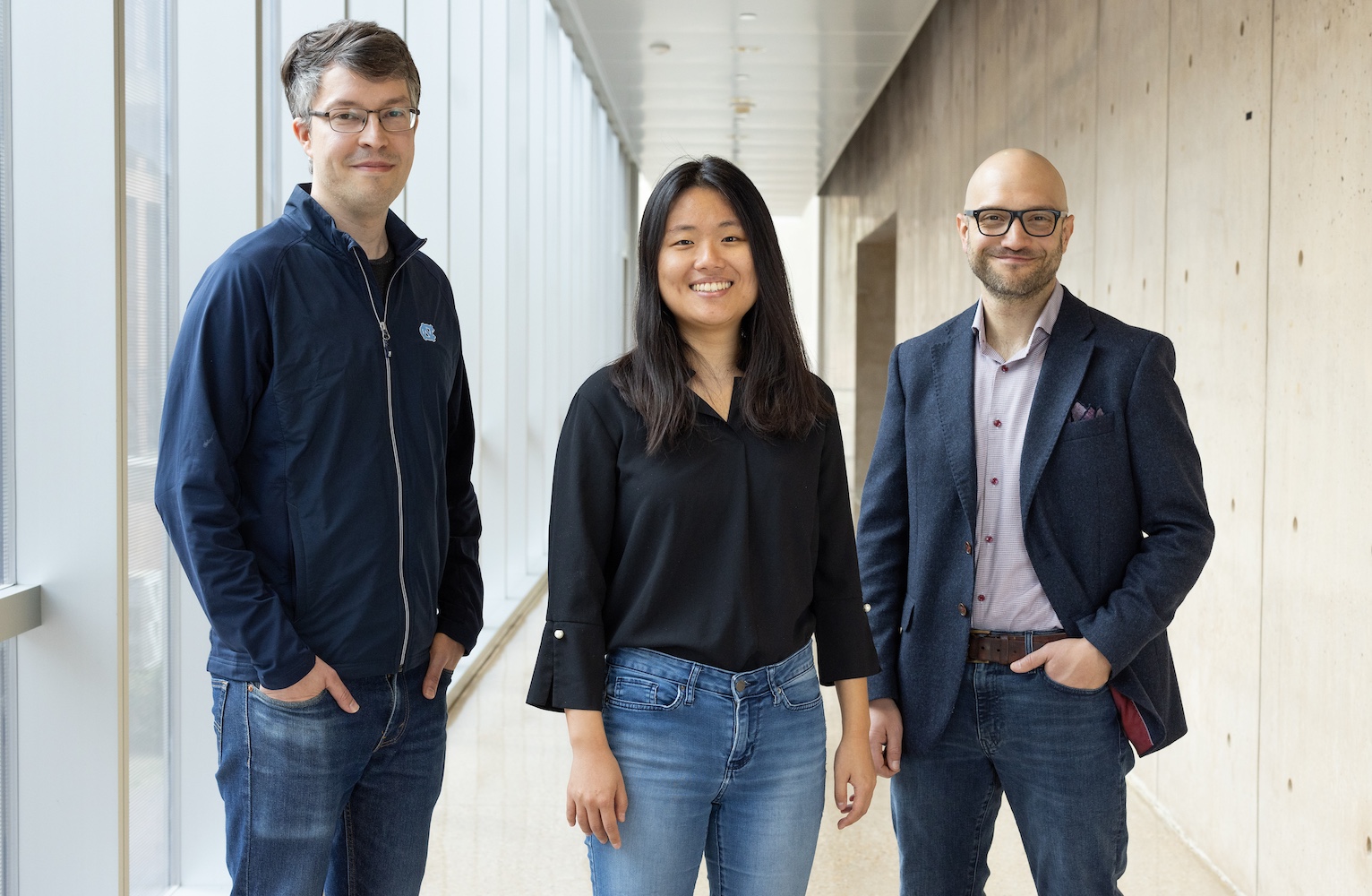
UNC School of Data Science faculty Alex McAvoy, Santiago Olivella and Harlin Lee (Photo by Jen Hughey/UNC-Chapel Hill)
In conversations about his work, Alex McAvoy, assistant professor at the UNC School of Data Science and Society (SDSS), sometimes shares a joke that an academic mentor once told him.
A mathematical biologist walks up to a farmer and says, “Hey, if I can guess how many sheep you own, can I take one home with me?” The farmer says, “You’ll never get it right, so go ahead!”
The mathematical biologist runs calculations, makes his guess and it’s exactly right. So he picks up his prize and starts to walk away. The farmer says, “That was amazing! If I can guess what your job is, will you give me my animal back?”
The mathematical biologist says, “That’s fair. What’s your guess” The farmer says, “You’re a mathematical biologist, and I can tell because you just picked up my dog.”
McAvoy uses the joke to illustrate a point about using data science tools. “I think there is insight into how modeling can be a double-edged sword,” he said. “It can be extremely useful, but it requires abstracting away the ‘right’ amount of information, which can feel like an art as much as a science.”
McAvoy, who has a secondary appointment in the mathematics department in the UNC College of Arts and Sciences, was among the first faculty members recruited to SDSS in 2023, and his farmer joke aligns with the school’s emphasis on a “human-centric” approach to applications of data science that solves real-world problems.
Insights from the experts
Understanding the fundamentals of data science can seem like a daunting task, especially for those who haven’t been inside a math or statistics classroom in a while. To help the subject feel a little more approachable, we asked McAvoy and two other professors in the school for a book, podcast or YouTube recommendation.
- McAvoy: “A book I like is ‘Calling Bullshit’ by Carl Bergstrom and Jevin West. I’m planning on assigning it as part of my class this fall. They’re both professors at the University of Washington. It’s all written in a way that you don’t need to be an expert with much technical background to get a lot out of this book. Another is ‘Weapons of Math Destruction’ by Cathy O’Neill. It’s similar in that it reads more like a nonfiction book than a textbook.”
- Harlin Lee, assistant professor at SDSS with affiliations in the computer science and mathematics departments in the College of Arts and Sciences: “I like a podcast called ‘Stats + Stories.’ I enjoy it because it talks about statistics in the headlines and then talks to the researcher about what it means and really gets behind the story. And then my students tell me they like a YouTube series called StatsQuest, which is made by a former researcher at UNC. I haven’t personally checked it out, but I’ve heard good things.”
- Santiago Olivella, associate professor of political science in the College of Arts and Sciences with a full joint appointment in SDSS: “There’s a book called ‘Strength in Numbers’ by G. Elliot Morris, and it’s the history of how statistics and data science have been used in politics. Obviously, there is a negative taste around politics in general, and I think polling is a very important part of that perception of politics being broken. And so I think the book does a really good job of not just laying out how data science has been used in polling and politics in general, but also how it can be used to make politics better.”
Related Stories




